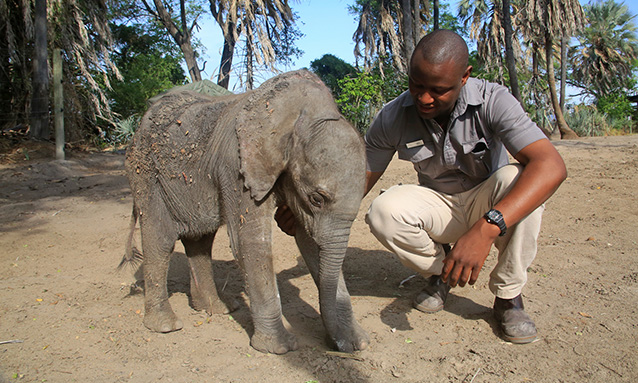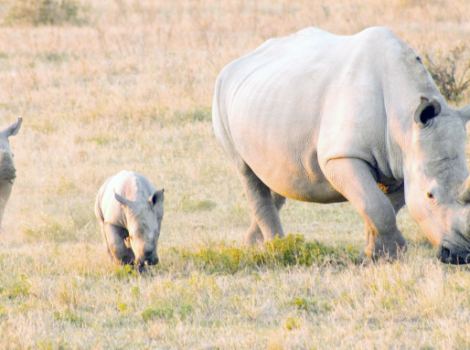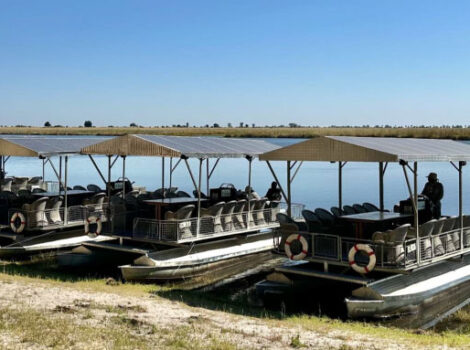
The last time we ere in Maun at the height of the COVID-19 pandemic, there was a buzz – everyone was talking about a baby elephant orphanage that was well worth a visit. As usual, there were just so many news places to visit that we ran out of time!
Back to our boring, lacklustre life in Gaborone, we started seeing countless social media posts about this amazing place and decided we had to do some research and write a piece on Elephant Havens Orphanage. One fine day, we fully intend to visit the orphanage to conduct a face to face interview, complete with firsthand photos of the facility – if the owners are game. So watch this space!
About the orphanage
The Elephant Havens orphanage is nestled along the banks of the Gomoti River at the edge of the Okavango Delta. It is an ideal place for young elephants to live and receive daily care and companionship until they are ready to be reintroduced to the wild.
Alongside the elephant enclosures (bomas), the fenced grounds also contain a fresh water well, veterinary office and lab, elephant formula prep kitchen, administrative office, reception area, public bathrooms and a main building for meetings, education and group events. The staff village includes separate bedrooms, a kitchen, hot showers and flushing toilets. All of the buildings are solar powered.
The site is about 45km northeast of Maun, the fifth largest town in Botswana, with a population of 55,000. The Maun International Airport is the jumping off point for many safari excursions into the Okavango Delta, the Chobe, the Linyanti, the Kalahari and other wildlife-rich regions. This makes it easy for friends of elephants to make Elephant Havens a destination as they head into the wilds of Botswana.
The locals who staff the orphanage as handlers, support and administrative personnel are seeing a direct benefit of elephant conservation. Rather than being a threat to crops, livestock and people, the elephants bring income through jobs in the wildlife and tourism areas. The locals who staff the orphanage as handlers, support and administrative personnel are seeing a direct benefit of elephant conservation. Rather than being a threat to crops, livestock, and people, the elephants are bringing income through jobs in the wildlife and tourism areas.
Raising baby elephant orphans
A baby elephant orphaned or abandoned in the wild simply cannot survive. Not only do they need milk from their mother, they also need constant care and companionship. To successfully raise elephants in an orphanage setting, elephant handlers care for their charges around the clock and sleep with them in their enclosure. The elephants are fed a special milk formula every few hours when they are very young. Gradually, they are introduced to the grasses and other vegetation they will one day rely on. Even at the age of 6, an elephant may not yet be weaned and can still be drinking at least some milk.
The handlers must rotate among the elephants every week to keep the babies from getting too attached to a single person. Too close of a bond with one handler can be a problem if that person has to go away – even for just a few days. Depression and grief can set in quickly, negatively affecting the orphan’s health.
All elephants are different, so there is no set time to reintroduce an elephant to the wild. When one shows signs of independence, they are taken out of their enclosure daily to spend time with the wild elephants in the area. Over time, they will spend more and more time with the herd, but they never forget their “human family”.
The orphanage has become a tourist attraction for both local and international visitors.
The people behind the orphanage
Debra Stevens and her husband, Scott Jackson, have been trekking to Africa since 2000. Over the years, they fell in love with the villagers and wildlife. But it was on a visit to Botswana in 2013, when Debra met a 6-month-old orphaned elephant named Naledi, that her life changed. The connection between them was instantaneous, and a lifelong bond was formed.
The baby elephant’s mother had died when Naledi was only six weeks old. A 50-year-old female elephant began lactating to try to keep the baby alive, but sadly, this wasn’t enough. Ultimately, handlers from Abu Camp saved her life by removing her from the herd to be cared for full-time by humans. They named her Naledi and raised her until she was independent enough to reintroduce her to the herd. Handlers stayed by her side in the wild, always ready with a bottle of milk because she wasn’t yet weaned.
Debra met Naledi just before she was returned to the herd and since then, has never spent more than six months away from her, returning to Botswana often from her home in Texas. Without fail, Naledi still runs to greet Debra every time she arrives. As Debra spent more and more time with Naledi, she learned how entrancing elephants are as a species. They have such a strong need for love and connection to community. In fact, they simply can’t live without it.
An orphaned elephant can die from grief without attachment to a “family”, whether that’s other herd members or humans. The possibility of saving more orphaned or abandoned babies like Naledi inspired Debra and Scott to found the non-profit Elephant Havens Wildlife Foundation in 2017 to protect and preserve the African elephant.
Source: Xinhua, elephanthavens.org



